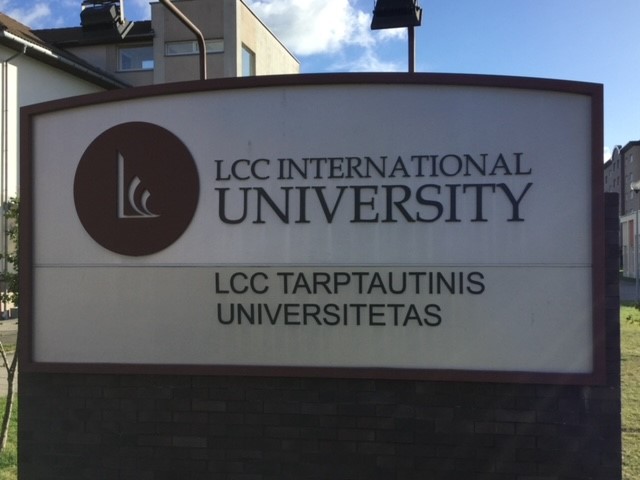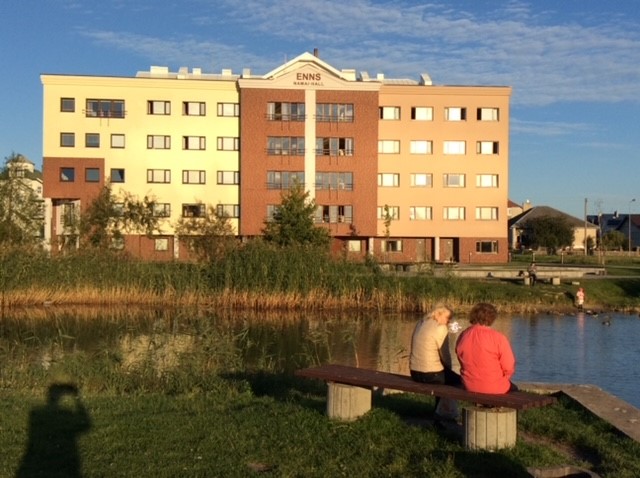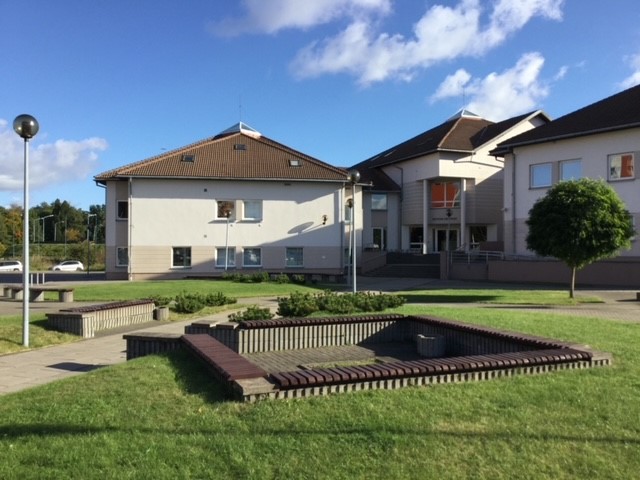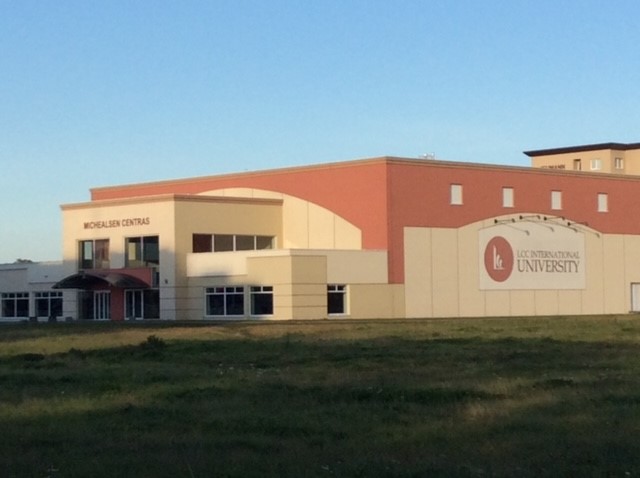Refugees and the Challenge of University Education
There are 30 million refugees beyond the borders of their own countries. Another 70 million are internally displaced. An estimated 6,000,000 or more should either be in University now or have missed their opportunity to study because of their dislocation.
If you are male you may have a chance at study beyond normal University age – but if you are female in societies such as the Middle East – your opportunities are limited and often non-existent. Young women are compelled to get married or in other ways seek security which will reduce or eliminate any future study opportunity.
Recognition of this reality encouraged the initiation of a unique program in 2016 to permit students from the troubles of the Middle East to enroll in a fully accredited University program in Europe. The program is titled MES or Middle East Scholars and is designed to offer access to a Bachelors level degree in English in a range of degree outcomes.


The venue is LCC International University located in Klaipeda, Lithuania. The University was founded at a moment in time (1990) when Lithuania was in rebellion against the Soviet Union – the first Republic to declare its independence. With tanks surrounding the Lithuanian Parliament in Vilnius, several of us entered and negotiated the founding of a University to be taught in English and based on the North American Liberal Arts model. LCC has often been described as:
A Political statement in the shape of a University.
LCC survived and thrived. It has a charter from the Lithuanian Parliament and its programs are recognized in Europe. It currently serves 800 students from 65 countries. Given this history it was an ideal platform from which to launch an innovative program to serve disadvantaged university-eligible students trapped in refugee situations.
The UNHCR has just published a study titled:
Mapping of Complementary Education Pathways in the Nordic and Baltic Countries.
This report describes the status of education access for refugees in each of these countries. We were very pleased that our MES program at LCC in Lithuania was singled out and recognized with the following statement in the report.
The Middle East Scholars Program at LCC University constitutes the sole initiative across the Nordic and Baltic states which currently meets the definition of complementary pathways.
The term “Complementary Pathways” is UN – speaks for programs beyond pure asylum which recognize the unique skills or attributes of individual refugees and create programs such as specialized employment which allow a refugee to find a new life.
Although the UN system and its agencies has always recognized the various needs of refugees beginning with security and food – education has been a lesser priority. To the extent that education support existed it focused on the younger children located in organized camp settings. University-age youth are more mobile and their situation needs and objectives are much more individual and diverse. They have historically tended to fall between the cracks of the global refugee systems.
I (Art DeFehr) have been involved in the refugee world since 1972 including major problem areas such as Bangladesh, Cambodia, Somalia, Soviet Union and more recently Myanmar. The challenge of University-age youth is always the same. They may be very politically engaged but personal or national circumstances either prevent them from entering University, sometimes political turmoil closes the Universities and if living external to your country there is simply a total lack of opportunity.
Then the Middle East exploded. Starting with Tunisia in 2011 we witnessed what we now know as the Arab Spring with all of its consequences. Syria exploded and produced millions of refugees. The chaos allowed ISIS to develop with its destructive consequence in Syria, Iraq and beyond. Many individuals were affected but the impact on certain communities such as the Yezidi and Christians in Iraq was catastrophic.
LCC had developed a great amount of experience serving students from challenging situations such as the former Soviet Republics and beyond. We decided to combine the expertise of LCC and my personal background in the refugee world by speaking to what we considered a gap in the global refugee system – programs to serve the University-age refugees who had a limited window to engage in study. We recognized that students from the Middle East represented some particular challenges. Given the emerging terrorism associated with a Muslim identity and the memory of 9-11, students from this background were treated with suspicion. Even if they had the right credentials in terms of language and ability they could not easily access programs in the West.
The initial idea was to create a special campus in Tbilisi, Georgia where (refugee) students from the region (Middle East) could spend a year of preparation in language (English) and be tested and prepared for study in Western Universities. The objective was not only to assure language skills and test for University potential but also to create a situation where the person was no longer only a name but an individual who had spent a year in a highly structured and relational community. We could not only certify skills but to a significant degree provide assurance that this person would not be a risk to a country that would accept them (usually a ‘him’ in terms of risk) for study.
A physical campus was established in Tbilisi in 2014, staff arrived and teaching began. The dramatic arrival of refugees in Europe with some associated refugee violence resulted in a sudden mistrust of refugees. There had been anticipation that Georgia could join the West in terms of NATO and possibly the EU. There was now a fear that one of our students (our campus was located in a valley just below the American enclave) would do something that made the international news and poison the political atmosphere. We were unable to get visas for students from places such as Kurdistan, the Syrian camps in Turkey or Jordan. Our target had been 200 students per year with the expectation that many would gain entry into North American or European Universities.
Although the Tbilisi program ‘failed’, we had collectively gained a great deal of experience in the region and had developed excellent relationships among refugees and refugee organizations. We decided on an alternate plan. The idea was to create a program of scholarships to LCC International University itself for a smaller student group but would offer a full 4-year university program. The DeFehr Foundation supplied the seed money which was amplified by LCC internal funding and later gained support from the Government of Lithuania.
To date more than 90 students have participated in the MES program and a number have successfully graduated. The Government of Lithuania has been under pressure by its European partners to participate in the settlement of refugees. Many refugees who were accepted by the Government of Lithuania did not have roots or speak the language and once inside the EU would depart for what they considered more attractive destinations such as Germany – usually places where they had family or at least groups from their own origins.
The Lithuanian Government noted that the MES students had been carefully selected, were successful in their studies and many MES students made efforts to participate as volunteers or contribute in other ways in the local community. MES students arrive as regular international students which gives them access to work opportunities. Lithuania has been responsive and has created a path to long term residence and citizenship for MES students. This combination of programs and actions represent an important reason why the UNHCR has singled out the MES program as being unique and meeting its full conditions as a “complementary pathway” for refugee students.


Comments and conclusions:
The MES program is and will always be a ‘work in progress”. Its creation represented a great deal of flexibility but was also rooted in an understanding of the refugee reality.
The LCC campus and structure is relatively unique within Europe. It is centered on a residential campus where student life and concern about student anxiety and personal tragedy could be accommodated.
Access to flexible private financing was critical. Governments and even the UN are unlikely to accept the level of uncertainty involved in the creation of MES.
Finally, we must give full credit to the incredible students who have accepted the opportunity and made the most of it. They are all people you would love to meet! There will be future stories of their success somewhere in the world. With quality English, a solid education, incredible cross-cultural experience with the global student body plus unique personal cultural and language skills – they are truly an international talent pool that will be attractive to many global businesses and organizations.
As is always the case – the MES program could not have started or succeeded without the incredible talent and contribution of many at LCC. I will single out Aiste Motekaitiene the VP of Marketing who logged many kilometers in the region and Dr. Marlene Wall, President of LCC, a fully active participant at every stage.
Postscript:
As the world evolves – often in less than peaceful ways – there are new locations that are producing students in trouble. These include Afghanistan and Myanmar and continuing problems in Iran, Eritrea and beyond, and of course there is Ukraine. LCC currently hosts 200 students from that troubled nation. The title of the program may change to “War-affected Students” reflecting this larger reality. If any reader is interested in expanding the capability of the program by funding one or more students – there is no shortage of quality candidates. Please respond to myself at adefehr@palliser.ca and we will put you in touch with the program.



